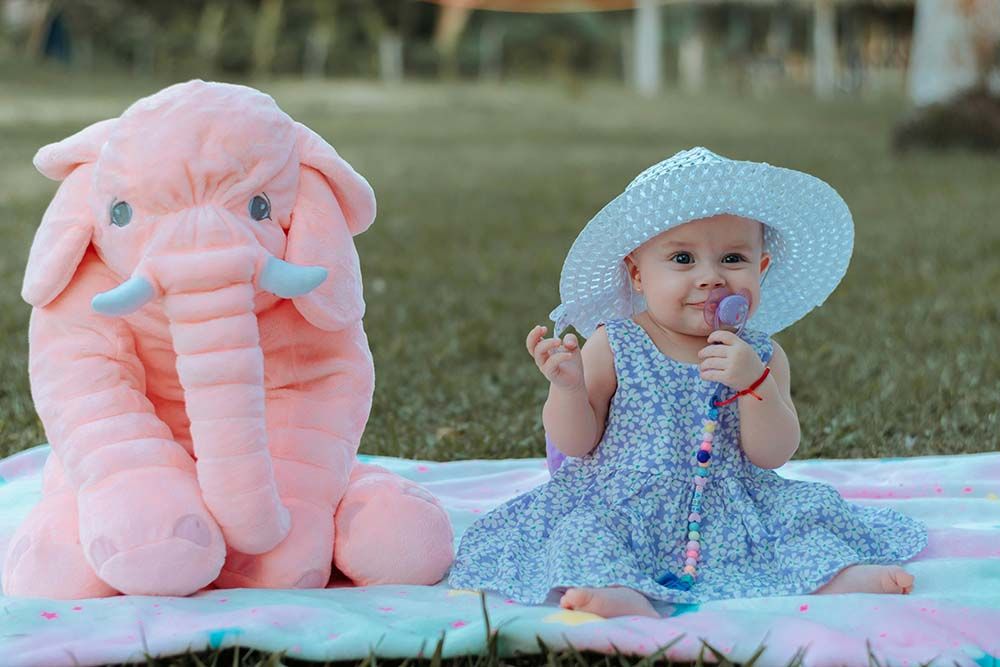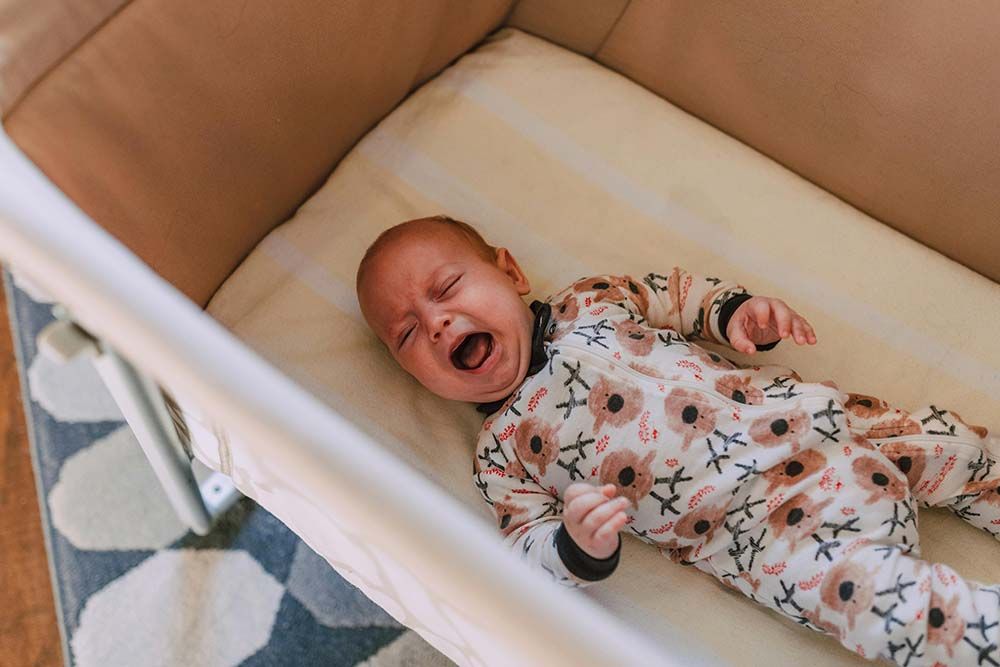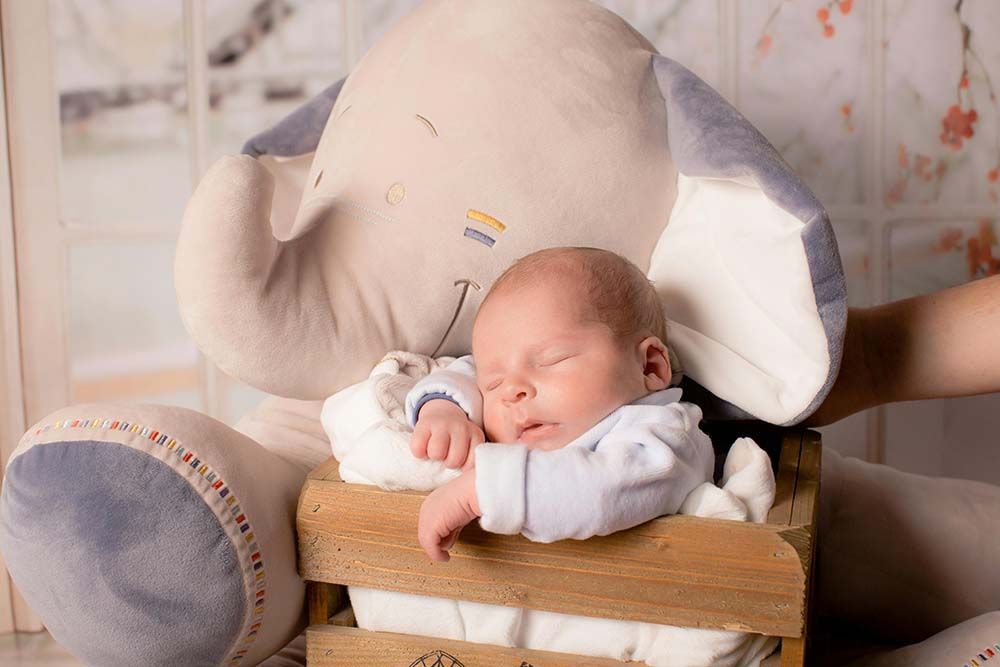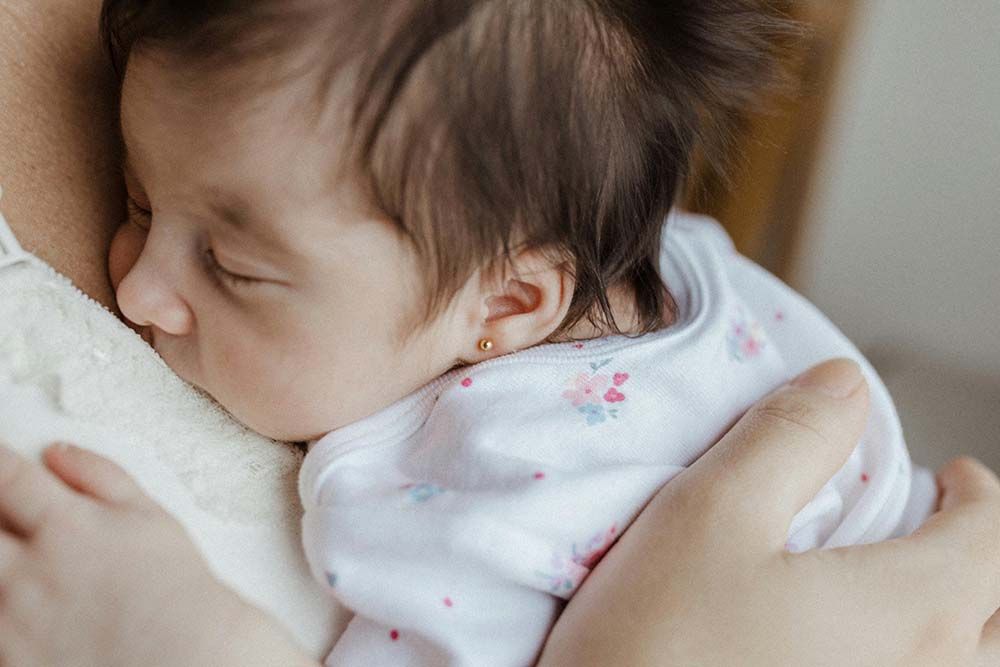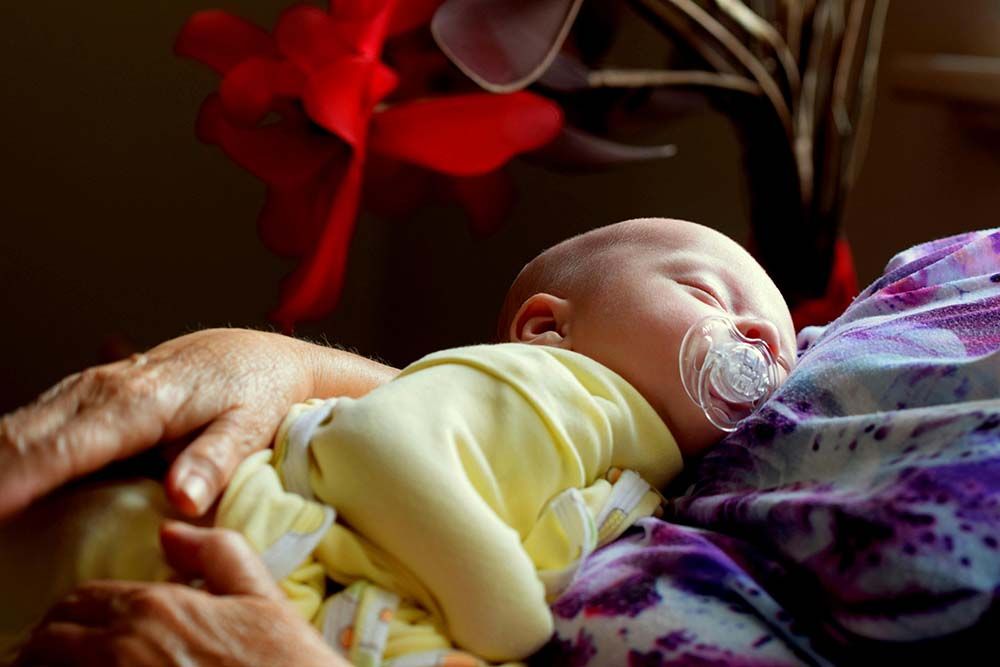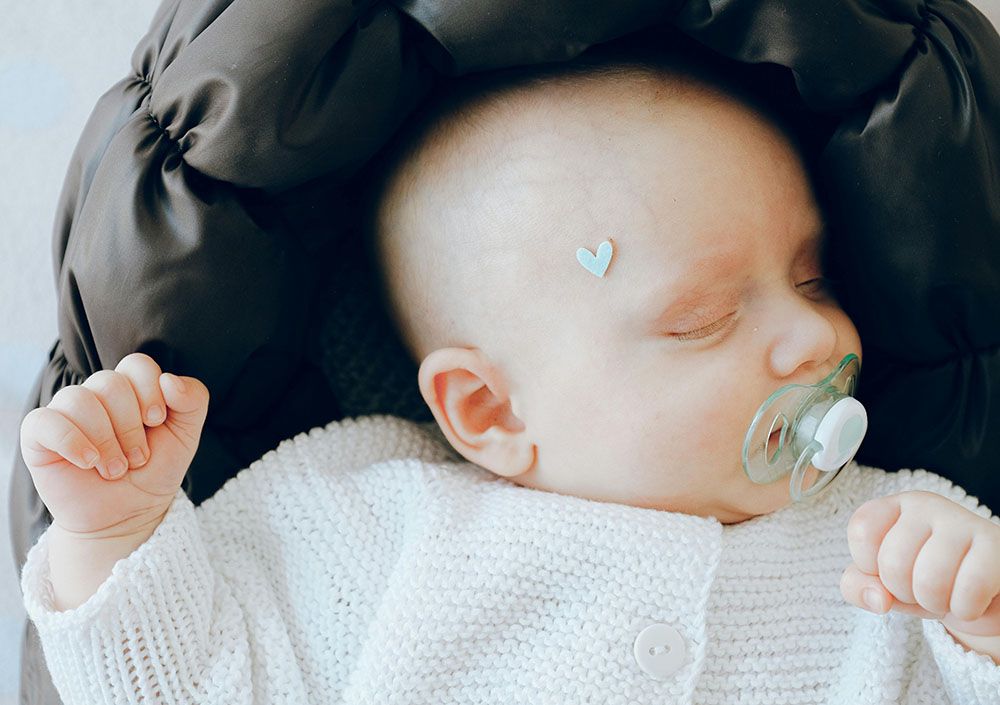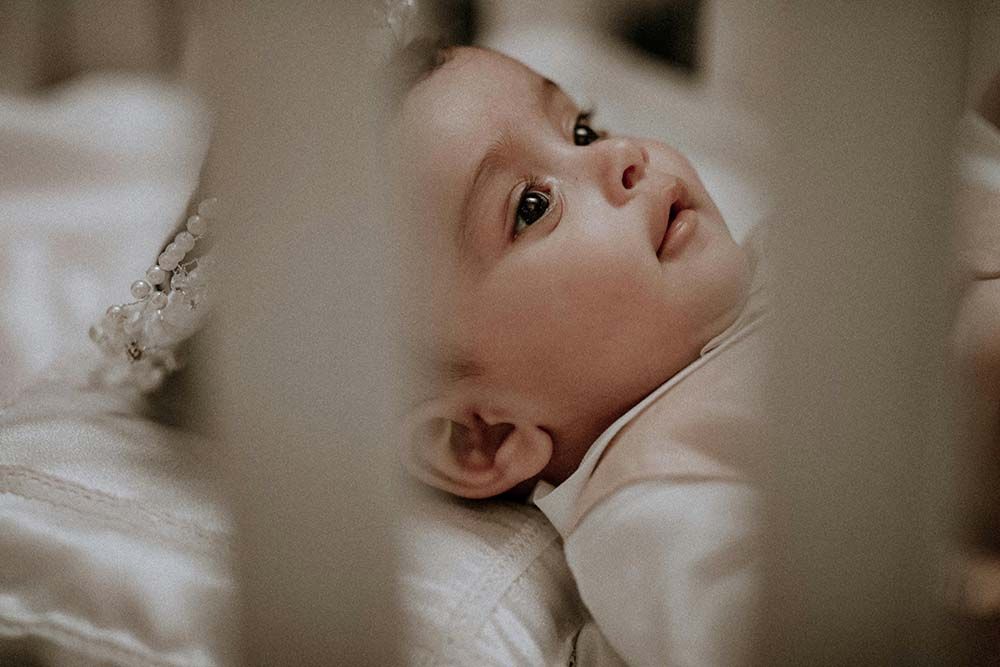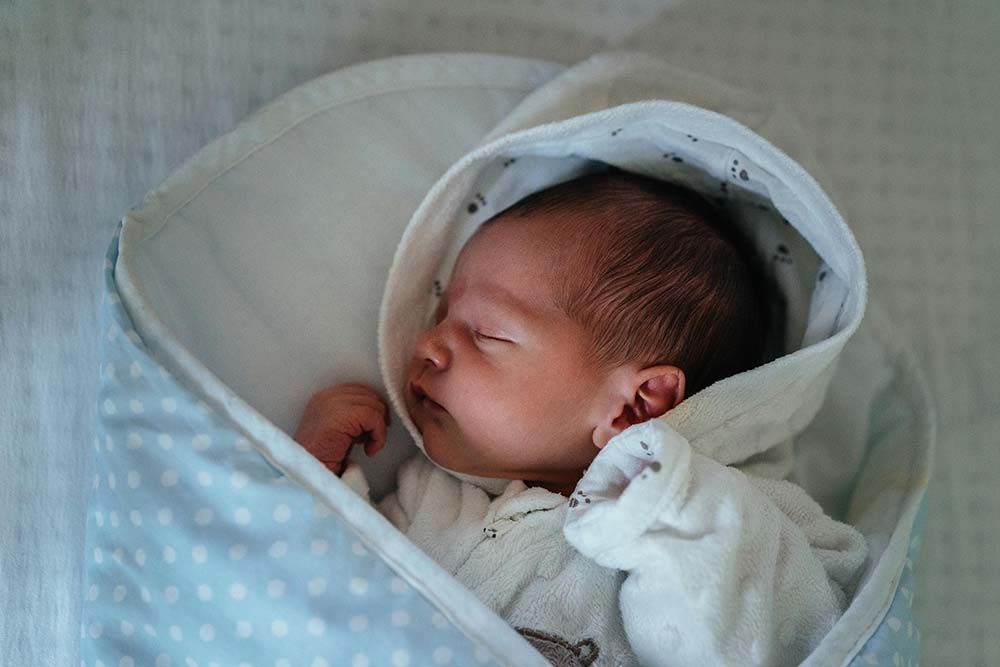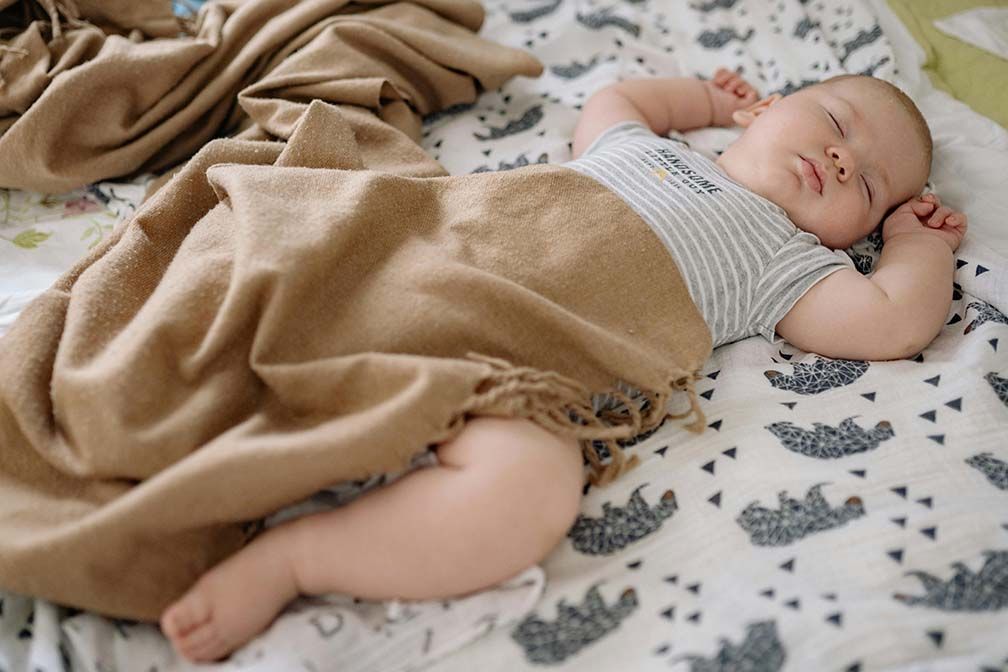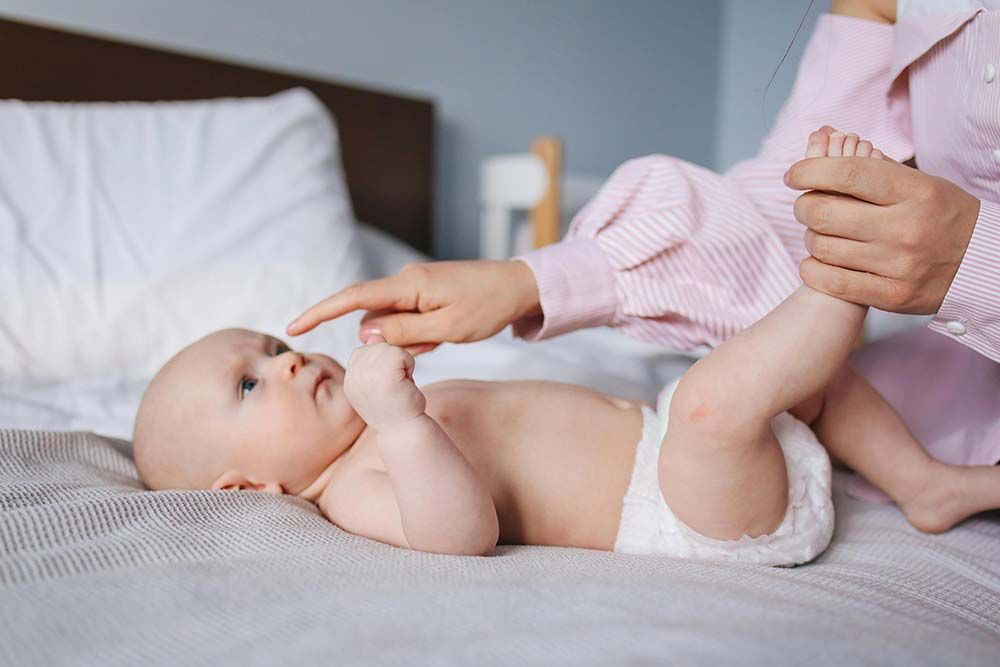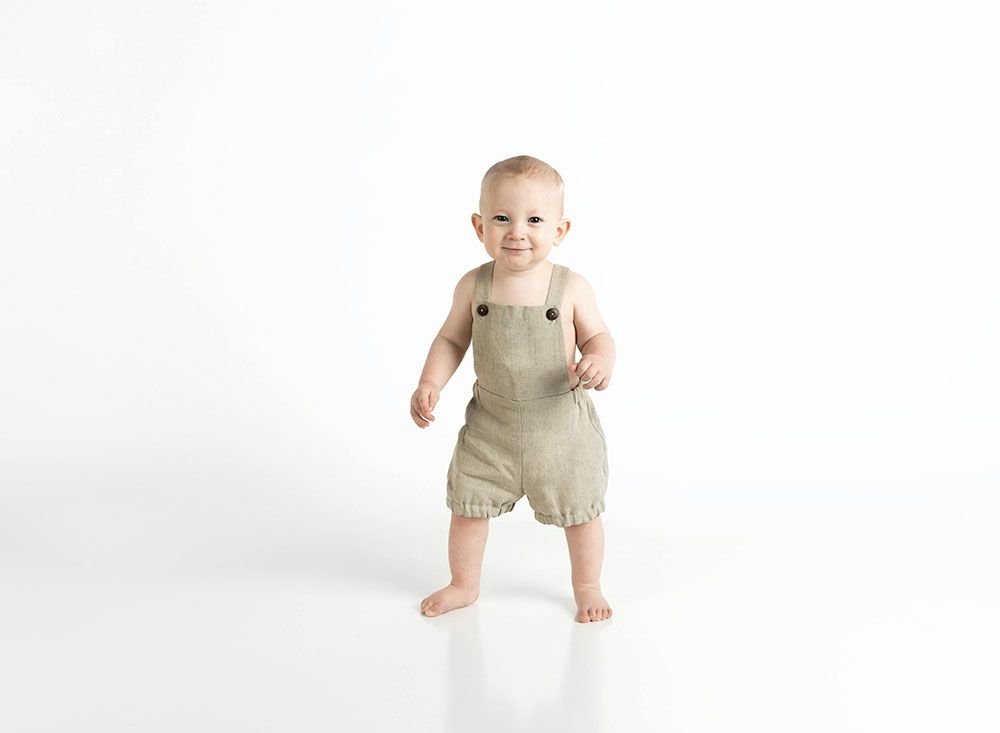

Since infants cannot express their needs in straightforward words, taking care of an infant to sleep is not an easy task. Sometimes, no matter how hard parents try to comfort their babies, all comes to a useless effort. Although having been well fed or changed a diaper, babies still do not fall asleep and even become fussy or crying. If your baby haven’t reached 1 year old, teething is a great issue that needs to be taken into consideration because of the accompanied pain or discomfort.
In fact, it is surprising for some parents to find that infants sleep more when teething than usual, which causes quite a stir among new parents. If you are concerned about this phenomenon, welcome to read this article to find your answer, which will show you a range of comprehensive views about the issue of “Do infants sleep more when teething”.
IN THIS ARTICLE
What are the signs of teething for babies
Does teething affect sleep for babies
Why do infants sleep more during teething
How long does teething fussiness last
How to soothe a teething baby who won't sleep at night
When do Babies Start Teething?
Newborns usually start to grow teeth between 6 and 12 months old. Most babies' first teeth appear around 6 months old, but some babies may start teething as early as 4 months or as late as 10 months old. Generally speaking, the front teeth (lower front teeth) are the first to sprout, followed by the upper front teeth, and then the other teeth. Every baby's developmental process is different, so as long as the baby is healthy, there is no need to worry too much.
What are the Signs of Teething in Babies?
Except for experiencing significant emotional fluctuations like becoming easily crying for impatient or restless, there also are some common signs indicating that your baby may grow teeth currently.
1. Increased drooling: The baby's saliva secretion will significantly increase, leading to an increase in drooling.
2. Bite things: Babies will bite things with their mouths, such as fingers, toys, clothes, etc., to relieve discomfort in their gums.
3. Loss of appetite: Babies may refuse to eat, especially solid foods, due to gum pain.
4. Gum redness and swelling: The baby's gums may become red and swollen, and sometimes white spots where teeth are about to protrude can be seen.
5. Grab your ears or rub your cheeks: Babies may scratch their ears or rub their cheeks because they may feel discomfort in their ears or face.
Do Infants Sleep More When Teething?
Obviously, teething can affect sleep for babies. During this period, due to the pain and discomfort caused by teething, the baby's sleep pattern may be changed, causing them hard to fall asleep at nap and nighttime sleep. Actually, many babies may become more irritable during teething, leading to a decrease in sleep duration and quality, an increase in the number of awakenings at night, and a change in the sleep patterns.
Why Do Infants Sleep More During Teething?
During teething, babies may experience changes in their sleep patterns, including an increase in sleep time. However, this change is not a universal phenomenon, and each baby's reaction may be different. Here are some possible reasons why babies may sleep more during teething:
1. Physical fatigue accumulation: During the process of teething, the baby's body undergoes a series of physiological changes, including gum inflammation and pain, which consume a lot of energy. In order to cope with these discomforts and energy consumption, the baby may become fatigue and need more rest and sleep to restore energy.
2. Self regulatory mechanism: Sleep is an important mechanism for self-healing and recovery. When a baby feels uncomfortable, the body may spontaneously increase sleep time to help alleviate pain and discomfort.
3. Emotional fatigue: Discomfort during teething may cause emotional fluctuations in the baby, leading to feelings of restlessness and unease. Emotional fatigue may also lead to babies needing more sleep to restore psychological balance and stabilize their emotions.
4. Physiological needs: Teething is a physiological process that requires the body to invest more resources to support tooth growth. Therefore, babies may make it by increasing their sleep.
5. Pain management: The discomfort and irritability caused by teething may make babies more inclined to fall asleep when feeling tired, in order to avoid discomfort temporarily. Also, some babies have a strong tolerance for pain and may recover calmness in a shorter period of time.
6. Adjustment of biological clock: Discomfort during teething may affect the baby's biological clock, causing babies to become more sleepy during certain periods of time, thereby increasing their sleep time.
In addition, the reasons for infants to sleep more during teething may not only be related to teething, but may also include the following factors:
1. Infection or illness: If a baby contracts a cold or other illness during teething, it may cause them to feel tired and require more sleep.
2. Dietary changes: When teething, babies may refuse feeding, resulting in insufficient nutrient intake, which can make them feel more tired and increase their sleep needs.
3. Growth and development: At certain stages, the baby's growth rate may accelerate, which may also lead to them needing more sleep to support their physical development.
Although some infants may sleep longer during teething, this situation is usually temporary. If it persists for a long time or there are any abnormal symptoms, it is recommended to consult a doctor instantly to ensure that there are no other potential issues.
How Long Does Teething Fussiness Last?
In fact, all of the baby’s teeth will fully grow until the baby is 30 months old. Although the fussiness and pain during teething may accompany the entire teething period, growing teething is not continuous and there will be a period of time when your child will not actively grow new teeth. Generally speaking, a baby's irritability and discomfort only last for a few days before their teeth sprout, approximately 24 to 72 hours. Once the gums grow out of the teeth, most of the pain will disappear. In addition, due to the genetic factors, nutritional status, and individual differences of babies, the timing of teething may also vary for each baby so that the duration of teething fussiness will be altered accordingly.
Tips to Soothe a Teething Baby Who Won’t Sleep at Night
Teething can make infants uncomfortable, distracting them from sleeping constantly. Here are some practical methods to help teething babies alleviate their discomfort and improve their sleep quality.
1. Cold compress: Use a clean damp towel or a specially made frozen bite gel to apply cold compress to the baby's gums. Cold compress can help alleviate inflammation and pain in the gums, providing temporary relief.
2. Massage the gums: Gently massage the baby's gums with clean fingers. It can promote blood circulation, relieve gum pressure and pain.
3. Provide chew toys: Provide safe chew toys, such as silicone chew glue or frozen chew glue. Chewing toys can help babies relieve pressure and discomfort on their gums.
4. Keep clean: Regularly wipe the baby's mouth and gums with a clean damp cloth. Maintaining oral hygiene can prevent infections and reduce discomfort.
5. Provide additional comfort: Discomfort during teething may cause emotional fluctuations in the baby, parents ought to hug the baby more often and provide additional comfort and care. Emotional support can help babies feel at ease, reduce irritability and anxiety.
What Should You Avoid Doing During Baby Teething Period?
Also, there are some things to avoid to ensure their comfort and health. Here are some things to pay attention to:
1. Avoid using gum gel containing alcohol: Alcohol containing gum gel may stimulate the baby's gums and cause more discomfort. It’s recommended to choose an alcohol free, drug free gum gel designed for infants instead.
2. Avoid giving babies food that is too hard or too hot: Hard foods may exacerbate gum pain, while hot foods may irritate inflamed gums. Thus, parents should provide soft and gentle foods such as cooked vegetables, fruit puree, or soft noodles.
3. Avoid using ice cubes for direct cold compress: The temperature of ice cubes is too low, which may cause gum frostbite.
4. Avoid excessive use of painkillers: Frequent use of painkillers may have a negative impact on the health of babies. Instead, parents should, under the guidance of a doctor, use appropriate painkillers such as acetaminophen (paracetamol) or ibuprofen.
5. Avoid excessive cleaning: During teething, the gums may be sensitive and excessive cleaning may cause discomfort.
6. Avoid excessive appeasement: Excessive soothing may make babies rely on these soothing methods, affecting their ability to fall asleep independently.
7. Avoid letting babies bite unsafe items: Unsafe items may pose a risk of suffocation or damage to the baby's gums. Therefore, parents need to provide specially designed baby chew or chew toys to ensure their baby’s safety.
8. Avoid keeping the baby in a damp environment for a long time: During teething, babies may drool a lot, and prolonged exposure to humid environments may lead to rashes. It is advised to regularly change your baby's clothes and drool pads to keep them dry.
Conclusive Words
After reading this article, I believe that you can find your suitable method to copy with baby teething related issue. One needs to mention is that you need to discriminate whether babies’ sleep issues is caused by teething or just coincidental sleep regression at this time. And then take according actions to deal with the issue. If there are some severe or abnormal conditions, rush to consult a doctor for professional guidance or treatment.




